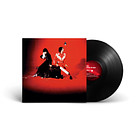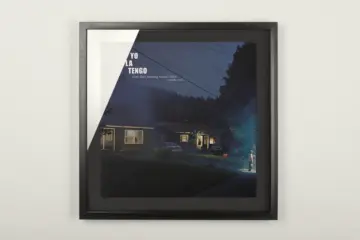Right up until the seven minutes and eighteen seconds of »Ball and Biscuit«, Jack White was considered a talented guitarist. Up to that point, there had been the raunchy »I Think I Smell A Rat« or the swansong »Dead Leaves and the Dirty Ground« on the album »White Blood Cells«. They were all big hits, and all promises that Jack White had yet to deliver on. But he did exactly that with this song on »Elephant«, the album that came out on 1 April 2003 and which, in retrospect, sounds like the big bang.

Elephant
Almost 70 years after the invention of the electric guitar, Jack White elicited sounds from the instrument that no one would ever have imagined possible. His instrument howled, screamed, moaned, roared, coughed and belched. It was more noise than harmony, more elemental force than music. And that is exactly why it is so incredibly intoxicating and great. Over the sluggish blues rhythm of »Ball and Biscuit«, he repeatedly launched one of the greatest guitar solos of all time. It was accompanied by Meg White’s stoically rudimentary drumming – perhaps the best contrast to showcase his artistry on the guitar to the fullest.
No mere imitation
It’s the greatest moment on a great album. It’s something that stands out from the overall sound of the day. The mood shortly after the turn of the millennium? Guitar music was dead. (Again.) Laid to rest to the sounds of Radiohead’s »KID A« and accompanied by a wave of so-called »The« bands: The Strokes, The Libertines, The Vines and (without an article before the name) Interpol, Ikara Colt and the Yeah Yeah Yeahs.
Common to all of them: Their sound made clear reference to musical role models like The Velvet Underground, the Rolling Stones, Nirvana or Sonic Youth. Nothing fundamentally new could be found on their albums. It was no longer all just simple nostalgia, but at times verged on blatant imitation. And The White Stripes also made it into a skew of published articles about this phenomenon, but probably more because of the article in their name than because of their sound.
Jack and Meg White don’t copy, they create. The White Stripes are originals. You can hear that on »Elephant« in each of the fourteen songs.
This is because the previous albums, all blues rock and punk-soaked smashes, clearly have their musical role models, but Jack and Meg White don’t copy, they create. The White Stripes are originals. You can hear that on »Elephant« in each of the fourteen tracks. The elaborate »Black Math«, which single-handedly revives guitar music, is followed by the escapist »There’s No Home For You Here«, including a choir to carry along the guitar.
On »Girl, You Have No Faith In Medicine«, The White Stripes groove along for over three minutes accompanied by drums, guitar and tambourine, while »Seven Nation Army« delivers perhaps the best stomping intro ever heard on record. Constantly accompanied by lyrics that sometimes more, sometimes less cryptically tell of love and the melancholy farewell of the all-American sweetheart. (Topped by »It’s True That We Love One Another«, which touches on the relationship status between Jack and Meg White, which is still not entirely clear to this day).
Raw energy
The album itself was recorded mainly in 2002 at Toe Rag Studios in London on antiquated equipment. »No computers were used during the writing, recording, mixing, or mastering of this record«, the liner notes say, which, depending on the journalist, could pass for eccentric wackiness or artistic expression. One thing is certain: By the time the album came out, The White Stripes were considered one of the best bands on the planet because of the raw energy that finally erupted on »Elephant«. In its list of the 500 best albums of all time, Rolling Stone magazine wrote, »The White Stripes’ fourth studio album […] transformed everything we knew about rock music.«
It’s an album that goes so completely against the grain, so against the sense of style of the time, so against the superimposed coolness of other bands. And if you haven’t had the pleasure of listening to »Ball And Biscuit« yet, then just allow its guitar riffs to massage your brain under the headphones for seven minutes and eighteen seconds. This piece alone was the promise that Jack White said he would deliver on. To this day, it remains a revelation of noise, blues, punk and all the energy that goes into them combined.









